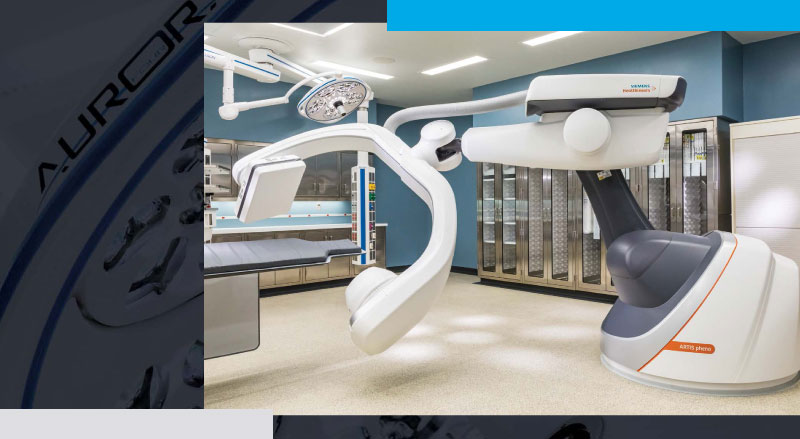Every year, thousands of children in Nebraska, lugging the weight of what they’ve seen and what they’ve experienced, are forced to walk through that dark tangle of statistics:
- More than 63 percent of children in foster care were removed from the home because of parental neglect, an all-too-often byproduct of drug use, violence in the home or a parent’s mental health. (State of Nebraska Foster Care Review Office (NFCRO), 2017-2018 annual report)
- Nearly 40 percent of children reviewed by the NFCRO had a mental health diagnosis at the time of review
- According to the American Academy of Pediatrics (AAP), approximately 50 percent of children entering foster care have chronic physical problems, 10 percent are medically fragile or complex, and many were exposed to substances before birth
“Seeing these kids survive and thrive despite all of this adversity is amazing,” says Suzanne Haney, M.D., division chief, Child Advocacy Team, at Children’s Nebraska, and currently the only board-certified child abuse pediatrician in Nebraska.
She envisioned and leads Children’s Foster Care Clinic, an outreach program launched in the fall of 2018 to amplify Children’s efforts to support Omaha-area children in foster care. In a single visit, the clinic’s multi-disciplinary team provides complete physical examinations, psychosocial assessments, developmental screenings, dental assessments and fluoride treatments, visual evaluations and nutritional evaluations.
“We identified a gap that we thought was important to fill in the continuum of care,” says Steven Burnham, senior vice president of Physician Networks, and president of Children’s Physicians and Children’s Specialty Physicians.
Upon entering foster care, children in the Omaha area are typically and initially screened at Project Harmony, an advocacy center for children who have been abused or neglected. Prior to opening the Foster Care Clinic, “what we found was – after they left Project Harmony – part of the time they wouldn’t get their prescriptions, part of the time they would never go back and see their primary physicians, and that screening information rarely got to the foster parents. So, children were just kind of getting lost,” says Dr. Haney, who also serves as Project Harmony’s medical director.
“The American Academy of Pediatrics (AAP) notes that many children in foster care have ‘received only fragmentary and sporadic health care’ and may enter the system with undiagnosed or under-treated medical problems. Some of those health conditions may be amplified during times of distress, like being removed from the home or transitioned from one foster placement to another.”
— State of Nebraska Foster Care Review Office, 2017-2018 Annual Report
Now, after that initial exam, Project Harmony refers children to the Foster Care Clinic for those more comprehensive assessments, the results of which are shared with the birth family, foster family, caseworkers and primary care provider.
“Children in foster care are considered by the AAP as children with special health care needs. Not meeting those needs is a travesty,” Dr. Haney says. “Abuse and neglect cause trauma to children. As a result, they have a risk of some significant long-term issues, including everything from heart disease to diabetes. Failure to thrive or malnutrition is a very common thing we see. These are kids who are at much greater risk for long-term complications.”
The only one of its kind in the region, the clinic flows naturally from Children’s mission: “to improve the life of every child.” No child in need of medical care, including those benefiting from the Foster Care Clinic, is ever turned away due to an inability to pay.
“It helps kids and it’s the right thing to do,” Burnham says.
Right now, the Foster Care Clinic is open Tuesday mornings from 8 am. to noon. Children are seen about six weeks into their foster care placement, which gives foster parents a chance to identify concerns and the clinic case manager a chance to obtain all of the child’s medical records. While the visit can last as long as four hours, Dr. Haney says “most foster parents do appreciate getting it done in one shot.”
Afterward, a follow-up appointment is scheduled with the child’s primary care provider.
“We made the decision that it would be a one-time visit,” Dr. Haney says. “Our goal is to assess each child, develop a plan and then transfer them to their primary physician for ongoing care. It really is a partnership with the general pediatricians in the area.”
Dr. Haney says the clinic is designed to help meet the medical and behavioral health needs of children placed in foster care, but the ultimate goal is broader than that – it’s about helping these kids grow into successful members of society.
“These children getting their medical and especially their mental health needs met sooner means they have a better chance of succeeding,” Dr. Haney says. “When the parents are aware of what’s going on, we can start to educate them – these behaviors are expected, here’s how to react to them. I think we can reduce the number of placement changes for the child, and in the long run, get them more quickly to a permanent home.”
That means less trauma in an already unsettled situation. Dr. Haney wants to provide that for even more children; she’s put in a proposal to grow the clinic. “I’ve asked for three more sessions a week and some more nursing, social work and behavioral health support so we can truly see all the kids in this area. We’re just at the tip of the iceberg right now that we’re able to help.”
Dr. Haney has distinguished herself by focusing her career on some of the most vulnerable among us. She was honored in 2016 by the Women’s Center for Advancement for her work to make the community a safer place for children. A year earlier, she received the Public Citizen of the Year Award from the National Association of Social Workers’ Nebraska Chapter. A profile in the Omaha World-Herald described her as “the go-to expert regarding child abuse in Nebraska, not only for social workers, but also for medical professionals, attorneys, police, school teachers and more.”
Burnham says Dr. Haney is a great community asset. “We would not have this Foster Care Clinic without her and her persistence.”
Each day in Nebraska, an average of more than 3,770 children are in foster care. For Dr. Haney, the reward comes in being there for as many of these children as possible, walking with them during a dark and potentially scary time in their lives. “I’m very grateful to be able to run a clinic like this. I have an incredible group of staff that is passionate about taking care of children. The joy I get from helping out these foster families and helping out these children is immense.”



